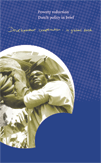|
UNESCO and Least Developed Countries |
|
UNESCO's Focus on Poverty Eradication in the Least Developed Countries
Past Events | Forthcoming Events
Click here to read UNESCO's Poverty Eradication Strategy >>>
| NEWS | ||||||
| 25 October 2002 - The United Nations Under Secretary-General and High Representative for the Least Developed Countries, Landlocked Developing Countries, and Small Island Developing States, Ambassador Anwarul Chowdhury (Bangladesh), undertook an official visit to UNESCO at the request of the Director General, Mr Koïchiro Matsuura. More >>> | ||||||
|
8 March 2002
- The United Nations Secretary-General, Mr Kofi Annan, has appointed
Ambassador Anwarul Chowdhury (Bangladesh) to the newly-established
post of High Representative for the Least Developed Countries,
Landlocked Developing Countries, and Small Island Developing States.
Ambassador Chowdhury, the immediate former and long serving head of the
Bangladesh Mission to the UN is a great friend of UNESCO. He was the main
instigator within the General Assembly for the adoption of
UNESCO's Agenda for a Culture of Peace. |
||||||
 |
Poverty Reduction "There is
more to poverty than having no roof over your head or too little to eat.
Poverty also means having no political clout and always being the first to
suffer when conflict breaks out. It means that your voice is never heard,
and that you have no influence on the developments that keep you poor. For
genuine change, we need to do more than treat the symptoms. We need to
change the processes that cause poverty and prevent its eradication." |
|||||
|
Civil
society and structural poverty reduction |
||||||
|
Forthcoming Events |
||||||
|
Conference
on Financing for
Development MONTERREY (MEXICO), 27/01/02:
Draft Final Version of the Monterrey Consensus just published. In 2002, the United Nations will convene for the first time a summit-level meeting to address key financial and related issues pertaining to global development. An unprecedented feature of the FfD process is the active participation of the World Bank, the IMF, and the WTO, as well as representatives of civil society and the business sector. In Monterrey, countries will be represented by finance and foreign ministries. Six key areas have been identified:
Follow this LINK to access the Official UN website for this Conference >>>
|
||||||
|
World
Summit on Sustainable Development ( WSSD) JOHANNESBURG (SOUTH AFRICA), SEPTEMBER 2002
Follow this LINK to access the Official UN website for this Conference >>> |
||||||
|
Past Events |
||||||
|
Summit
of Heads of State and Government of Africa on the theme "Financing the New Common Initiative" DAKAR (SENEGAL), 15-17 NOVEMBER 2001 |
||||||
|
Fourth
World Trade Organization Ministerial Meeting DOHA (QATAR), NOVEMBER 2001 For more information >>> http://www.wto.org |
||||||
|
World
Food Summit- Five Years Later ROME, (ITALY), NOVEMBER 2001 For more information >>> http://www.fao.org |
||||||
|
G-8 Genoa
Summit From the final official communiqué:
Click
here to read the full text >>>
http://www.genoa-g8.it/eng/attualita/primo_piano/primo_piano_13.html |
||||||
|
OUA
Lusaka Summit http://www.oau-oua.org/Lusaka/index.htm The OMEGA PLAN takes its name from the fact that it needs not be personalized as the idea, once stated, is meant to grow from the contributions of others in various environments. As a consequence, the Plan as a whole will be everybody's plan : this is the reason why it is given an anonymous name.The objective of the Plan is on one hand to assess the needs of our continent in an attempt to bridge the fundamental gaps between our countries and the developed countries, as such gaps are our major handicaps, and on the other hand to raise the needed funds in the best possible conditions. These
gaps are certainly all important and call for attention, but the Plan will
focus on the four significant
areas which follow : Full
text of OMEGA plan available from >>>
http://www.planomega.com/en/intro.htm |
||||||
|
WIDER
Development Conference on Growth and Poverty While
economic growth is a prerequisite for a sustained reduction in poverty,
policies aimed at raising growth rates are often associated with a range
of adverse short term effects, including rising unemployment, greater
economic insecurity, environmental degradation, and the weakening of
traditional social safety nets. Pro-poor growth strategies attempt to
address these short-term problems. But the ideal mix of policies, and
their impact on the prospects for poverty reduction in the longer run,
remain controversial topics. |
||||||
| Discours
du Directeur général de l'UNESCO à
l’occasion de la table ronde thématique sur l’éducation et le développement
durable dans les PMA (available
only in French) Bruxelles (Belgique), le 16 mai 2001 «...au-delà
de toutes les solutions que nous pourrons trouver, au cours de cette
troisième Conférence des Nations Unies consacrée aux pays les moins
avancés, pour aider ces pays à améliorer le niveau de vie de leurs
populations, il en est une qui est la clé de beaucoup d’autres :
c’est l’éducation...» |
||||||
| United
Nations Conference for Least Developed Countries (LDC III) Brussels (Belgium), 14 - 20 May 2001 Click here for more information >>> |
||||||